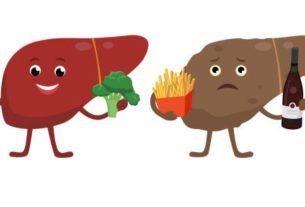Diabetes is a condition that affects millions of people around the world. It is characterized by high blood sugar levels due to the body’s inability to produce or use insulin effectively. Diet plays a crucial role in managing diabetes, and consuming a balanced and nutritious diet is essential for maintaining healthy blood sugar levels. Fruits and vegetables are an essential component of a diabetic diet as they are rich in fiber, vitamins, and minerals and low in carbohydrates.
Fruits and vegetables with a low GI value are ideal for a diabetic diet as they have a minimal impact on blood sugar levels. Some other low GI fruits that are great for diabetics include cherries, oranges, peaches, plums, and grapefruit. These fruits are rich in fiber, vitamins, and minerals and are excellent sources of antioxidants.In this article, we will discuss ten fruits and vegetables that are ideal for a diabetic diet.
Page Contents
Fruits and vegetables for diabetic diet
The diabetic diet is one of the most important to follow in order to maintain a healthy life. Here are some fruits and vegetables that will help you stay on track with your eating plan.
1. Leafy Greens
Leafy Greens such as spinach, kale, collard greens, and arugula are excellent sources of vitamins A, C, and K, as well as fiber, calcium, and magnesium. These vegetables are also low in carbohydrates and calories, making them an ideal choice for people with diabetes.
2. Broccoli
Broccoli is a cruciferous vegetable that is rich in fiber, vitamins C and K, and minerals such as potassium and calcium. It also contains sulforaphane, a compound that has been shown to have anti-inflammatory and antioxidant properties, making it an ideal choice for people with diabetes.
3. Blueberries
Blueberries are a low-glycemic index fruit that is high in antioxidants, fiber, and vitamins C and K. They have been shown to improve insulin sensitivity, reduce inflammation, and lower blood pressure, making them an excellent choice for people with diabetes.
4. Avocado
Avocado is a fruit that is rich in heart-healthy monounsaturated fats, fiber, and potassium. It also contains lutein, a carotenoid that has been shown to improve insulin sensitivity and lower blood sugar levels, making it an ideal choice for people with diabetes.
5. Tomatoes
Tomatoes are low in calories and carbohydrates and are an excellent source of vitamins C and K, as well as potassium and lycopene. Lycopene is an antioxidant that has been shown to reduce inflammation and improve insulin sensitivity, making tomatoes an ideal choice for people with diabetes.
6. Brussels Sprouts
Brussels sprouts are a cruciferous vegetable that is high in fiber, vitamins C and K, and minerals such as potassium and calcium. They also contain sulforaphane, a compound that has been shown to have anti-inflammatory and antioxidant properties, making them an ideal choice for people with diabetes.
7. Apples
Apples are a low-glycemic index fruit that is high in fiber, vitamins C and K, and antioxidants. They have been shown to reduce inflammation, improve insulin sensitivity, and lower blood sugar levels, making them an excellent choice for people with diabetes.
8. Carrots
Carrots are a low-calorie vegetable that is rich in fiber, vitamins A and C, and potassium. They also contain beta-carotene, a carotenoid that has been shown to improve insulin sensitivity and lower blood sugar levels, making them an ideal choice for people with diabetes.
9. Strawberries
Strawberries are a low-glycemic index fruit that is high in fiber, vitamins C and K, and antioxidants. They have been shown to reduce inflammation, improve insulin sensitivity, and lower blood sugar levels, making them an excellent choice for people with diabetes.
10. Cauliflower
Cauliflower is a cruciferous vegetable that is low in calories and carbohydrates and is an excellent source of fiber, vitamins C and K, and minerals such as potassium and calcium. It also contains sulforaphane, a compound that has been shown to have anti-inflammatory and antioxidant properties, making it an ideal choice for people with diabetes.
In summary, incorporating a variety of fruits and vegetables into a diabetic diet can provide a range of health benefits and help to regulate blood sugar levels. It’s important to choose fruits and vegetables with a low GI value, consume them in their whole form, and consider portion sizes and meal planning. Consulting with a registered dietitian can be helpful in creating a personalized meal plan that supports optimal health and well-being for individuals with diabetes.



